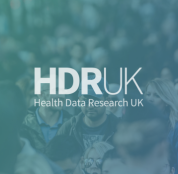The UK is in the unique position of having lifelong electronic health records (EHRs) for a population of over 65 million people through the NHS. Combined with the rapid advancement of genomic medicine and diagnosis, this presents an enormous opportunity to unite these sources and answer challenging questions about many different diseases.
The Molecules to Health Records programme aims to achieve the integration of biology, biomedicine and population health sciences.
“Over the next five years, the Molecules to Health Records team will seek to help unlock the potential of large-scale bioresources that contain multi-dimensional data from many diverse populations and patient groups. By bringing together information on genomics, other molecular traits, and electronic health records at scale, the team aims to provide major new actionable insights into the causes of important health conditions.” – Programme co-directors Professor John Danesh and Professor Sarah Lewington



